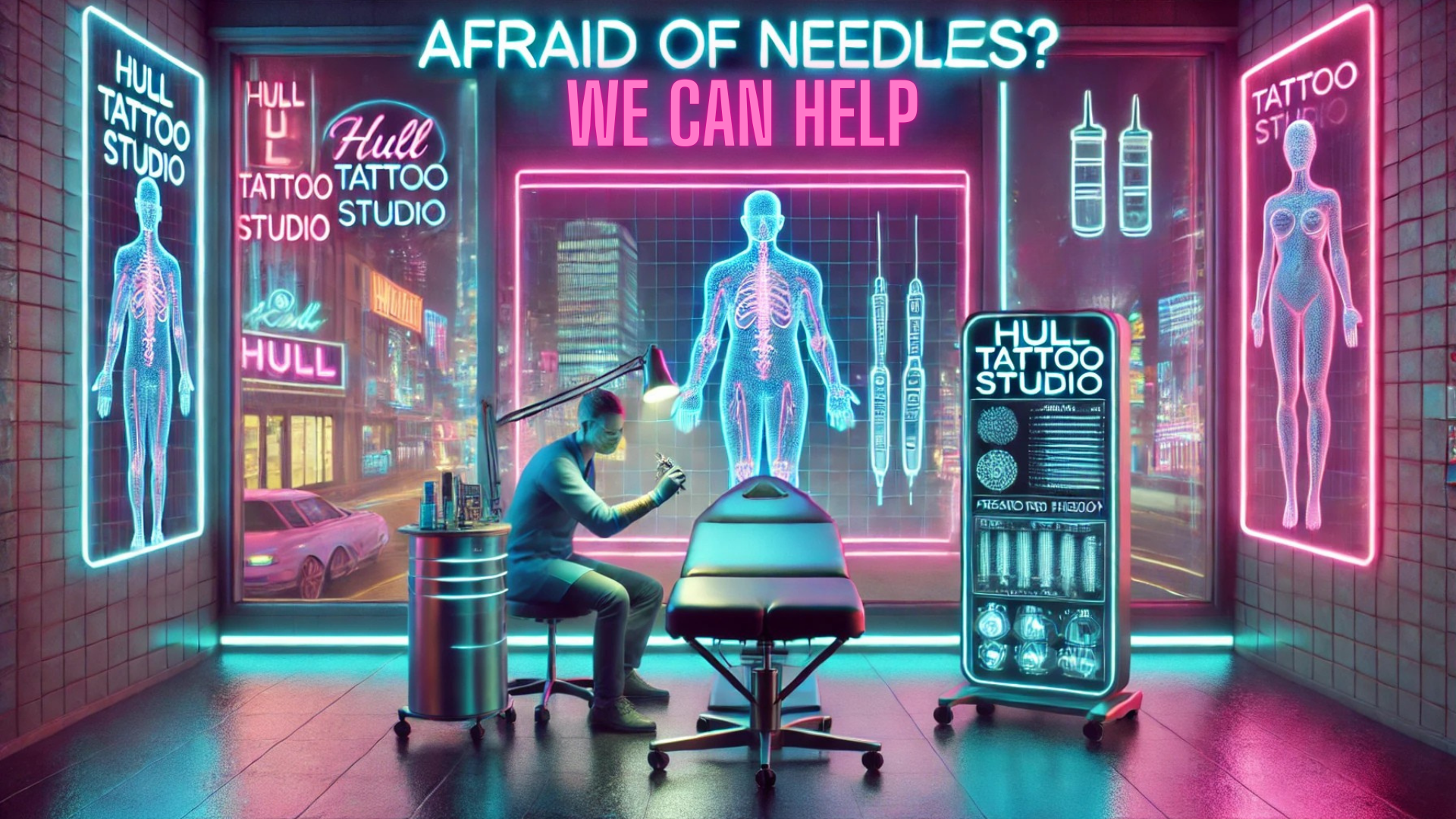Conquering Needle Fear: How Tattoos Transform Anxiety into Art

02.02.2025
Conquering Needle Fear: How Tattoos Transform Anxiety into Art
Many people experience an intense fear of needles—so-called trypanophobia—when facing injections, blood tests, or similar medical procedures. Ironically, this same fear is often less pronounced when it comes to getting a tattoo. In this post, we explore why tattoo needles seem less intimidating, review insights from both medical and popular sources, and explain how expert guidance can help you overcome needle anxiety to enjoy your tattoo experience.
Table of Contents
- Understanding Needle Phobia
- Why Tattoo Needles Aren’t as Scary
- Scientific and Medical Insights
- [Expert Guidance: How Mike Helps Clients](#expert-guidance-how-mike-helps-clients)
- Tips for Overcoming Needle Fear
- Final Thoughts
Understanding Needle Phobia
Needle phobia, or trypanophobia, affects a significant portion of adults. Many people describe an extreme emotional response—ranging from anxiety to fainting—when confronted with the idea of an injection. In fact, studies and popular health articles indicate that up to 25% of adults report a strong fear of needles, which can lead to avoiding important medical treatments .
This fear is often rooted in the anticipation of pain, the sight of a needle, or negative past experiences. However, the context in which a needle is used can dramatically alter the perception of pain and anxiety.
Why Tattoo Needles Aren’t as Scary
When you step into a tattoo studio, the experience is very different from that of a medical clinic. Here’s why:
- Needle Visibility: In tattooing, the needle is typically housed within a machine, with much of it hidden from view. The brief, rapid punctures are part of an artistic process rather than a clinical injection.
- Controlled Environment: Tattoo artists work in a carefully controlled, relaxed atmosphere, focusing on creating art rather than performing a medical procedure.
- Artistic Distraction: Many tattoo studios engage you in conversation or provide music and other distractions that help shift your focus away from the needle.
- Gradual Exposure: The tattooing process is gradual, allowing you to adjust and relax with each phase of the work.
These factors combine to create an environment where the needle—although still present—is perceived as an artistic tool rather than a source of imminent pain.
Scientific and Medical Insights
Research into needle phobia suggests that controlled exposure and distraction techniques can significantly reduce anxiety. For example, a popular article on Self explains that while many people dread needles for medical procedures, the context and expectations can change the experience dramatically .
Additionally, some clinics and experts note that the physical characteristics of tattoo needles—being extremely fine and almost unnoticeable during the rapid punctures—contribute to a lower level of distress compared to the larger, more visible needles used for injections . In essence, when the needle isn’t the center of attention, the brain registers less fear and pain.
Expert Guidance: How Mike Helps Clients
At Hull Tattoo Studio, our lead artist Mike has extensive experience working with clients who are nervous about needles. Over the years, Mike has developed a patient, reassuring approach:
- Personal Consultation: Before beginning any tattoo, Mike discusses the process in detail, addressing your concerns and explaining every step.
- Customized Techniques: By adjusting his technique to minimize the needle’s visibility and reduce discomfort, Mike creates a more relaxed atmosphere.
- Distraction and Communication: He actively engages with clients during the session—chatting, playing soothing music, and encouraging deep breathing—to keep your focus away from the needle.
- Positive Reinforcement: Mike’s calm demeanor and clear explanations help build your confidence, emphasizing that a tattoo is not a medical procedure but a unique, creative experience.
This tailored approach has helped many clients overcome their needle anxiety and leave with a tattoo they love.
Tips for Overcoming Needle Fear
If you’re feeling nervous about your upcoming tattoo, consider these expert-approved tips:
- Look Away: It’s perfectly fine not to watch the needle at work. Instead, focus on a point in the room or enjoy the conversation with your artist.
- Deep Breathing: Practice slow, controlled breathing to reduce anxiety and steady your nerves.
- Bring a Distraction: Listen to your favorite music or bring a comforting object to hold during the session.
- Talk It Out: Share your fears with your artist—communication can be incredibly reassuring.
- Trust the Process: Remember that tattoo machines work quickly and efficiently, and the needle is designed to cause minimal discomfort.
By employing these strategies, you can help ensure that your tattoo experience remains positive and creative.
Final Thoughts
Needle fear is real and common, but the tattooing process is uniquely designed to minimize the distress often associated with medical injections. With a controlled environment, artistic focus, and expert guidance from professionals like Mike, many clients find that their anxiety fades away as they embrace the art.
If you’re considering your first tattoo but are held back by fear, know that you’re not alone—and that with the right preparation and support, you can transform that anxiety into a rewarding piece of art.
For more insights on overcoming needle phobia and to see how our studio creates a comfortable environment for every client, check out our blog and learn more about Mike.